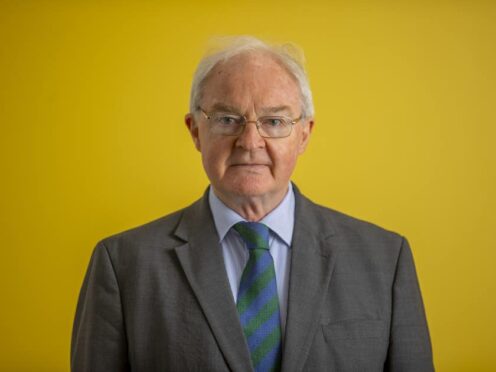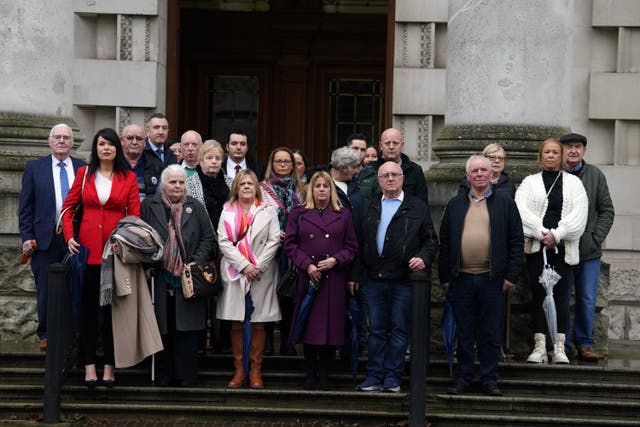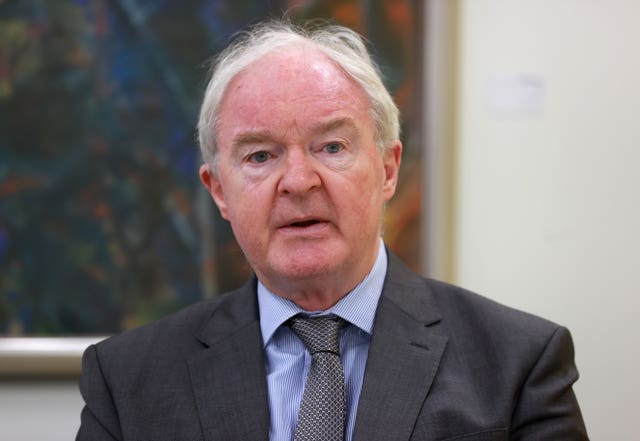
A new body set up to investigate Troubles deaths has the powers to carry out effective investigations without the provision for conditional immunity for offenders, its head has said.
Northern Ireland’s former Lord Chief Justice Sir Declan Morgan leads the new Independent Commission for Reconciliation and Information Recovery (ICRIR).
Sir Declan has also insisted that the Government cannot veto or prevent any reports delivered by the commission.
The ICRIR, established by the Government’s controversial Legacy Act, will take over responsibility for hundreds of unresolved Troubles cases.

The new Act received royal assent last year despite widespread opposition from political parties, victims’ organisations in Northern Ireland and the Irish government.
Aspects of the laws include a limited form of immunity from prosecution for Troubles-related offences to those who co-operate with the ICRIR.
In February, a judge at Belfast High Court ruled that the provision for conditional immunity was not compliant with the ECHR. The Government is appealing against that finding.
The Irish Government has also launched an interstate legal case against the new laws.
In an article written for Fortnight magazine, Sir Declan pointed to the other powers available to the commission.
He said: “It was the High Court’s ruling that the conditional immunity scheme within the Act was not compatible with the ECHR and the Windsor Framework, that caught the headlines on the day.
“But with regards to the main areas of focus for the commission – recovering information for victims, survivors and families who have suffered loss or serious injury – the court held that the proposals were capable of complying with the ECHR.
“And, while the disapplication by the court of conditional immunity means that one of the tools for the commission to potentially recover more information is not available, we consider that the other powers at our disposal will be sufficient to carry out thorough investigations, to recover information for families, survivors and victims and to establish the facts of each death or serious injury.”
Sir Declan set out the powers available to the ICRIR.
He said: “We have police powers, that can be used where necessary, and we can carry out investigations to support criminal prosecutions. We have the power to refer cases to the relevant prosecutor.
“But, we also have new statutory powers too that are far-reaching. We have the right to access all information held by state bodies that we reasonably require for our investigations.
“This is without redaction, without others telling us something is not relevant, and without obfuscation.
“It is the commission that determines what we reasonably require, no-one else.
“There is a corresponding legally binding duty on state bodies to provide the information.”

He added: “We also have the power to require witnesses and individuals to provide information or attend to answer questions and can fine people up to £5,000 for non-compliance (five times the fine a coroner can impose).”
Sir Declan said it was crucial that reports delivered by the ICRIR would be able to set out the “unvarnished facts” of what happened in cases it investigates.
He said: “There have been suggestions that our reports could be vetoed or prevented by the Secretary of State. This is not the case.
“I would not have accepted this role if I believed that the findings that the commission makes could be interfered with by the state.
“There is a statutory process which provides for the release or non-disclosure of sensitive information which the commission intends to publish in its reports.
“This requires the Secretary of State to give reasons; and the commission would highlight all cases where agreement was not provided.
“Such ministerial decisions can ultimately be challenged in the courts.”
Sir Declan said it was not for him to defend nor champion the Government’s Legacy Act.
He said: “However, one of the supposed criticisms, that the Act provides insufficient detail is, in my view, a significant opportunity.
“It allows the commission to develop an approach that can carry out thorough investigations, can give greater involvement to victims and families in its approach, and can seek to reflect the different needs to those affected by deaths and serious injuries during the Troubles.”

Enjoy the convenience of having The Sunday Post delivered as a digital ePaper straight to your smartphone, tablet or computer.
Subscribe for only £5.49 a month and enjoy all the benefits of the printed paper as a digital replica.
Subscribe